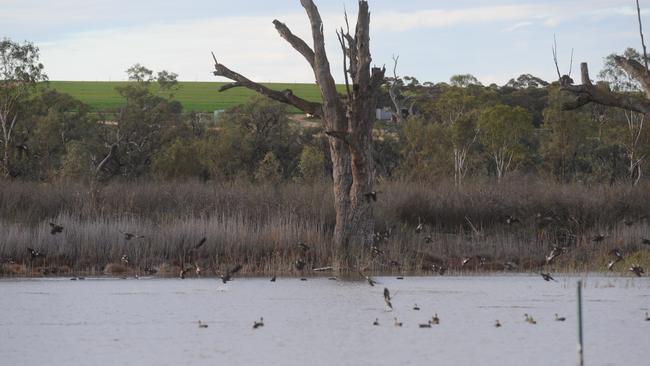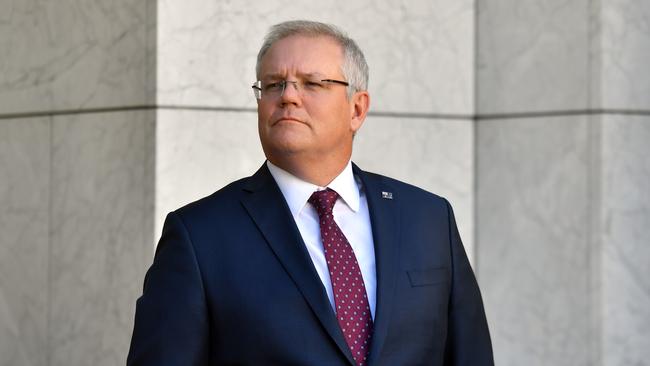How Morrison’s new reform puts Australia back on top
Some things are more important than money – like national security and self-respect. And the Prime Minister’s latest changes to foreign investment prove just that, writes Peta Credlin.
Rendezview
Don't miss out on the headlines from Rendezview. Followed categories will be added to My News.
Don’t let anyone tell you that the issue of foreign investment is black and white; it’s not.
Like all the important issues we face as a country, it’s complex and there’s plenty of history. But that’s not an excuse for government to consign it to the too-hard basket because part of the reason we’ve got serious challenges now in areas like energy, water, and our falling education standards, is that we’re loathe to make the hard but necessary decisions to turn things around.
I call it ‘the line of least resistance’ in politics, where you know you need to be seen to ‘do something’ so you make a change that’s not likely to offend anyone, but that almost guarantees it’s barely any change at all.
Not so on Friday when the Prime Minister announced the most significant reforms to Australia’s foreign investment rules since the regime was established in 1975.
The rules are now clearer, tighter and better enforced. From here on in, regardless of the amount, any foreign investment in “sensitive” assets, such as telecommunications, energy, hi-tech businesses and defence suppliers will attract Foreign Investment Review Board (FIRB) scrutiny.
In these areas at least, it makes permanent the temporary rules put in place by the Treasurer at the start of this pandemic.

I said this issue was complex because there’s no doubt modern Australia would be unrecognisable without overseas capital given the tax base provided by our relatively small population and the development needs of our vast continent.
But this reality should never mean open slather because who owns what, and how much they own, is critical to Australia’s national interest. The voters know it and finally, it seems government is waking up too.
Not only will these new rules demand greater scrutiny of investment in areas of sensitivity, but they also establish a new compliance regime that’s been a key deficiency of FIRB to date. What I mean by this is that FIRB would often attach conditions to a sale (such as requiring the company’s board to be Australian, or head office to stay here) but too often these conditions were never met, yet the sale went ahead anyway.
Also included in Friday’s announcement is a power for the Treasurer to ‘call in’ an investment, meaning a new sale or stake could be overturned if it’s later found to be against the national interest.
It’s a welcome acknowledgment that some foreign investment – selling the Port of Darwin to Chinese interests, for instance – has national security implications and can’t just be considered on competition or economic self-interest grounds. Sure, if you’re a seller, taking the best bid makes commercial sense. But if you make vital defence equipment or are at the forefront of the next IT breakthrough, what’s in your best financial interests may not be in the best interests of our country.

Had this power existed back in late 2015, it might have stopped the NT government’s sale of the port of Darwin to a Chinese entity, provided of course PM Turnbull had the ticker to use it, and avoided the ongoing embarrassment of a port routinely used by Australian and American naval vessels being run by a foreign power.
Now that FIRB has some compliance teeth, I want to see it bark, and I still want to see the Coalition make good on its 2013 election promise to establish a fully transparent, and public, register of who owns what in this country including critical assets like water.
All this matters because if a foreign company owns a substantial stake in an Australian business, it can influence what it does. And if a foreign government owns an Australian business, it can control what it does.
Given we don’t normally support the Australian government nationalising private assets, why would we permit a foreign government to do so – or a foreign company that’s under the thumb of a foreign government?
Some might say the risks are minimal with a foreign company that just wants to maximise profit. But even here, there can be problems: look at the way the partly French government-owned power generator Engie closed down the Hazelwood power station (and doubled power prices in Victoria) to maximise the value of its other assets.

That’s why it’s been right for successive Australian governments to ban Huawei from involvement in the NBN and now in the 5G network too, even though using Huawei would probably have been cheaper in the short-term.
Some things are more important than money – like national security and self-respect.
In the end, whether it’s trade in sensitive technologies or investment in sensitive industries, the question is: how dependent on other countries do we wish to be? While there’s no doubt that market freedom maximises overall wealth, there’s also little doubt that market freedom can be better for some countries and some individuals than for others.
Importing Chinese TVs and fridges has probably maximised overall prosperity – and certainly been good for Chinese workers and Australian consumers – but how good has it been for the Australian companies and local workers who once made these sophisticated manufactured goods here? Or even unsophisticated items such as face masks and hand sanitiser as we’ve seen recently?
As consumers, we bear a lot of responsibility because our preference for a cheap import over a locally made (but often more expensive) item has made it harder for the local player to survive.
If we learn just one lesson out of this pandemic, it’s this – if we want Australian businesses to survive it’s up to us to support them.
Originally published as How Morrison’s new reform puts Australia back on top



